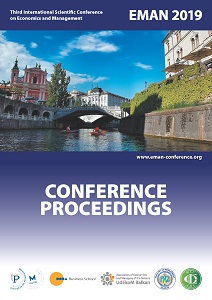THE STAKEHOLDERS: A COMPARISON BETWEEN IAS/IFRS AND ITALIAN OIC STANDARDS FOR FINANCIAL REPORTING
THE STAKEHOLDERS: A COMPARISON BETWEEN IAS/IFRS AND ITALIAN OIC STANDARDS FOR FINANCIAL REPORTING
Author(s): Annalisa Baldissera
Subject(s): Financial Markets, Accounting - Business Administration
Published by: Udruženje ekonomista i menadžera Balkana
Keywords: stakeholders;financial reporting;accounting standards;
Summary/Abstract: The scope of this paper is to analyze – from a critical point of view – the financial statements, with particular regard to their main recipients and to their effective adequacy in satisfying the information needs of stakeholders. The paper aims to contribute to the current debate on the ability of financial reporting to be really useful and effective for stakeholders. It is important to note that in the last ten years the external information has increased considerably, moving from mere accounting and financial information towards several profiles, as sociality, environment, sustainability, corporate governance, risk policies and, more generally, non-financial data. This new direction highlights the growing need for information that the recipients of financial statements express, so that it is extremely important to verify if this need is really satisfied. In addition, given that the Italian accounting standards, settled by OIC (Italian Accounting Body), are very different from the International IAS/IFRS, the paper uses a comparative method, based on the reconstruction, for each of them: a) of the type of information provided; b) of the type of recipients to whom they are addressed. The comparison is made through the analysis of the conceptual framework of the two groups of principles, considering that the main difference between IAS/IFRS and OIC standards is that the former are mostly derived from practice and use a problem-solving approach, typical of Anglo-Saxon empiricism; while the latter are based on an opposite view, namely on the construction of an accounting theory aimed at guiding the practice. According to the majority doctrine, there is a typical and well-known difference between the two groups of principles: the IAS/IFRS standards are based on fair value and are mainly investor-oriented, while the OIC standards are based on historical cost and are mainly creditor-oriented. In addition to this distinction, the paper proposes a further one, based on the differentiation between informational effects and management effects. In particular, the accounting conservatism typical of prudent countries, like Italy, produces, above all, management effects due to the fact that it prevents the distribution of unrealized earnings, so protecting company’s capital. On the contrary, an opposite effect is produced by IAS/ IFRS, since the use of fair value can provoke the emersion of presumed but not effective profits, in some cases distributable.
Book: EMAN 2019 / 3 – Economics & Management: How to Cope with Disrupted Times - CONFERENCE PROCEEDINGS
- Page Range: 205-210
- Page Count: 6
- Publication Year: 2019
- Language: English
- Content File-PDF

